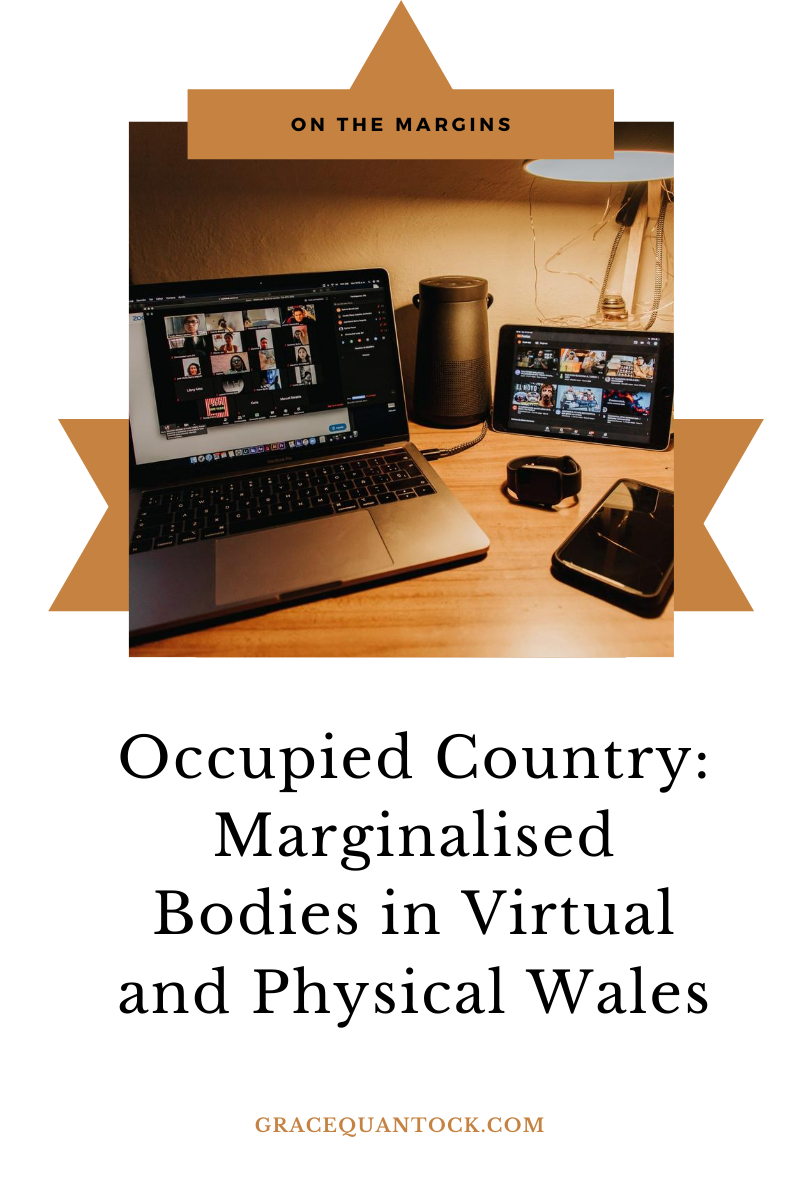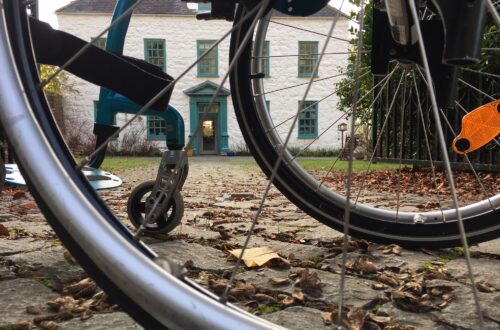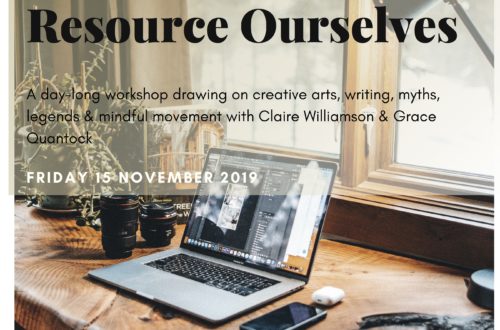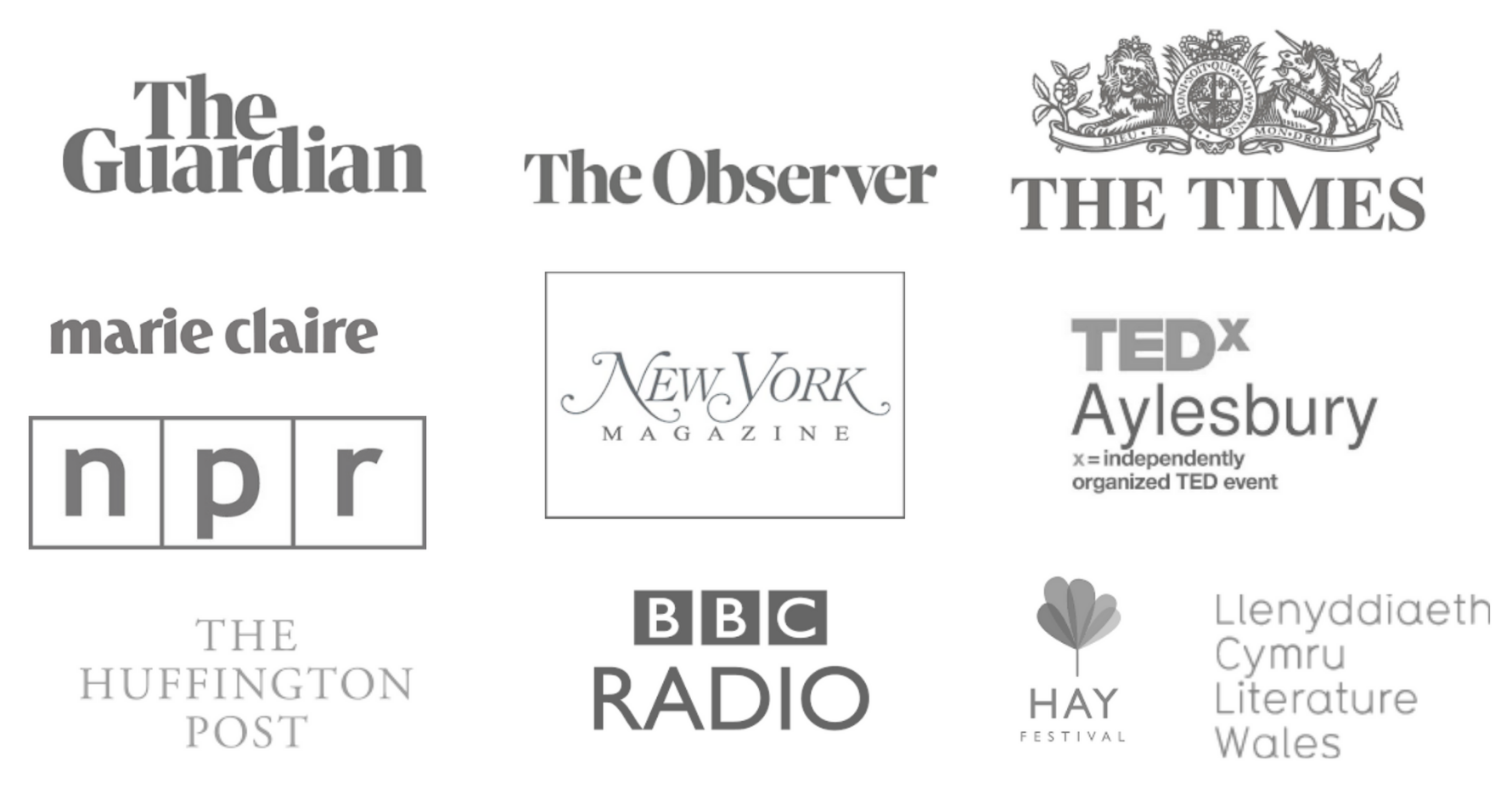
Occupied Country: Marginalised Bodies in Virtual and Physical Wales
I’ve been pulled into lots of unwanted conversations lately; someone, usually a middle-class white person, speaks passionately about how difficult the lockdown is for them.
I’m afraid I’m out of patience with these comments already. I wonder if people like this have never had their movements or liberty constrained before. I don’t know what that’s like. Do they have any friends/family who aren’t white and/or wealthy and/or non-disabled?
Or if they do, perhaps they aren’t the kind of friend you can tell things. I’m not appeasing anyone who managed to ignore the feelings of marginalised folx around themselves up to this point. “I didn’t know” also means “I wasn’t listening”.
These conversations tend to centre around the struggles of Zoom (or the video platform du jour). “It’s awful, a poor substitute for meeting in person. I can’t wait to get back to ‘real life’. And it’s much more exhausting than talking in real life” they tell me earnestly. “For you”, I reply, abruptly.
“What?” they always ask, confusion crinkling brows, lips pinched. Their well rehearsed speech is stopped up behind polished teeth the colour of pearls. My voice stalled it’s flow, but I can feel it pushing. I get the impression they aren’t used to being interrupted. “It’s more exhausting for you, for neurotypical people. Not for all of us.” There’s consternation on their faces. The middle class non-disabled white experience isn’t, in fact, universal? Challenging concept for many, I know.







